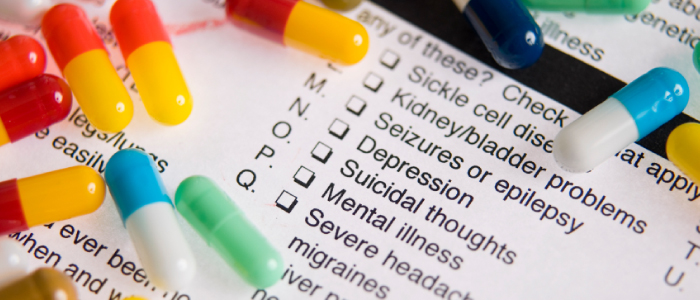 What Is It?: Chloramphenicol (klor-am-FEN-i-kole) is used in the treatment of infections caused by bacteria. It works by killing bacteria or preventing their growth. Chloramphenicol is used to treat serious infections in different parts of the body. It is sometimes given with other antibiotics. This medicine may cause some serious side effects, including blood problems and eye problems. Symptoms of the blood problems include pale skin, sore throat and fever, unusual bleeding or bruising, and unusual tiredness or weakness.
What Is It?: Chloramphenicol (klor-am-FEN-i-kole) is used in the treatment of infections caused by bacteria. It works by killing bacteria or preventing their growth. Chloramphenicol is used to treat serious infections in different parts of the body. It is sometimes given with other antibiotics. This medicine may cause some serious side effects, including blood problems and eye problems. Symptoms of the blood problems include pale skin, sore throat and fever, unusual bleeding or bruising, and unusual tiredness or weakness.
How To Use: The dose of chloramphenicol will be different for different patients. Follow your doctor’s orders or the directions on the label. The following information includes only the average doses of chloramphenicol. If your dose is different, do not change it unless your doctor tells you to do so.
Possible Side Effects: Along with its needed effects, a medicine may cause some serious unwanted effects. Although not all of these side effects may occur, if they do occur they may need medical attention. Stop using this medicine and get emergency help immediately if any of the following side effects occur: * Rare–Bloated stomach; drowsiness; gray skin color; low body temperature; uneven breathing; unresponsiveness. Also, check with your doctor immediately if any of the following side effects occur: * Less common — Pale skin; sore throat and fever; unusual bleeding or bruising; unusual tiredness or weakness (the above side effects may also occur up to weeks or months after you stop taking this medicine. * Rare– Confusion, delirium, or headache; eye pain, blurred vision, or loss of vision; numbness, tingling, burning pain, or weakness in the hands or feet; skin rash, fever, or difficulty in breathing. Other side effects may occur that usually do not need medical attention. These side effects may go away during treatment as your body adjusts to the medicine. However, check with your doctor if any of the following side effects continue or are bothersome:* Less common– Diarrhea, nausea or vomiting
Storage: Keep in the original container. Keep out of the reach of children and pets. Capsules and tablets may be stored at room temperature. Some liquids should be stored in the refrigerator (see the prescription label.) Store all medicines away from excess heat and moisture. Do NOT store in the bathroom.
Note: If you miss a dose give it as soon as you remember it. However, if it is almost time for the next dose, skip the missed dose and continue with the regular schedule. Do not give a double dose to make up for the missed one.
